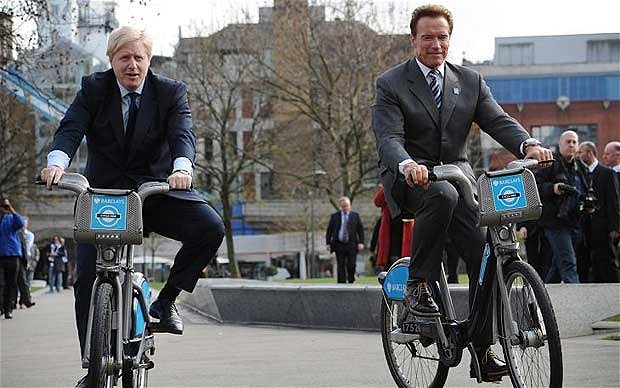
The environmental champion of London, Mr Boris Johnson has called for the introduction of a diesel car scrappage scheme in order to improve London air quality.
The move comes as councils across the country face hefty fines from the EU relating to missed pollution targets.
This recent announcement goes in line with other plans that could see diesel drivers in London facing an additional £10 fee for entering the congestion zone. Both policies are a big step towards the pricing out of many motorists in our capital, helping to reduce congestion and also harmful emissions just as nitrogen dioxide.
The move to reduce the number of diesel fuelled cars comes as quite a shock to many motorists who have been sold the benefits of diesel car ownership by the goevernment. This latest news is seen my many of a complete U turn of government policy with industry leaders also predicting an end to reduced road tax for “low emission” diesel vehicles as fully electric cars and petrol hybrids continue to increase in market share and reduce in price.
In an interview Boris said, “I feel very sorry for them, this has been a massive failure of public policy, millions of people were told they were doing the right thing, the clean thing, the environmentally friendly thing, by buying a diesel. They now feel very hacked off now they’re told they are more polluting.”
These plans are yet to be set in stone but we’ll be sure to keep you all abreast these plans as they develop.
[ad]




Boris Johnson’s proposal to offer a small incentive to scrap diesel powered vehicles is utterly absurd. The latest research demonstrates that today’s petrol engines create TEN times more harmful particulates than diesels:
http://www.transportenvironment.org/sites/te/files/publications/GDI%20Briefing_final_T%26E.pdf
All cities experience pollution and it is right to work towards a healthier environment. However to blame one form of fuel over others is shallow thinking. The worst pollution in Lndon occurs when we have a high pressure system, light easterly breeze and low rain fall. That’s when all the muck (industrial and chemical haze, Sulphur Dioxide, Acid Rain, and yes NOx from agriculture and vehicles) we usually export to our European neighbours comes back to spike the average pollution figures.
The real issue is energy consumption and the fact that all human activity generates emissions. Your esteemed publication once stated a cyclist emits 15g/km CO2 !
Electricity generation and transmission is not emission free. In the UK Defra states we emit at least 500g/kWh CO2 at the power station. If not why the EU ban on high powered vacuum cleaners!
If we want to make Kyoto targets on global pollution then scrapping and replacing cars (which uses a huge amount of energy) that are already 30% more thermodynamically efficient than the nearest competitor, that are built to last longer (High compression ratio, high torque at low rpm with a lubricant fuel unlike petrol is why there are still 1970s Peugeot 405s doing sterling service in Africa after 500,000 miles), that use a fuel that requires less refining or can run on Waste Vegetable Oil or well managed bio- fuel requiring less land than ethanol, is madness.
How are your cereals harvested? How are they transported over sea and land to the supermarket? How are they or any goods delivered to your door when you order online? By diesel tractors, Trucks, ships and vans.
How is the Lithium in your laptop, mobile or electric car batteries mined in Bolivia, shipped to China then UK then to your home? Probably by diesel!
£2k is not enough to give up a 13 year old, 875kg, low drag (Cd0.25) aluminium car with 204,000 miles on the clock because it is still able to offer proper start stop technology, 100mpg and under 90g/km CO2 whilst carrying 4 adults:
http://www.greenconsumerguide.com/audi_a2_tdi.php
Replace it with what? Modern cars cannot compete environmentally when globalised marketing encourages the motorist to buy or lease ever bigger and heavier machinery (compare 1970s VW Golf with 2014 version and then compare size and weight of F1 cars over same period) actually increase congestion and pollution on our highways. EVs have a future but so does diesel as part of an intelligent mix of technologies.
Yours faithfully